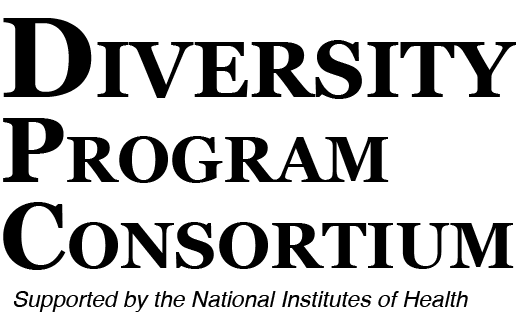



DPC Hallmark STU-2
By Krystle Cobian
December 2019
“Self-perceptions of efficacy vary across different activity domains, different levels of demands within activity domains, and different environmental circumstances of performance” (Bandura, 1986, p. 371)
How is self-efficacy--specifically with respect to scientific research-- related to biomedical career outcomes? Albert Bandura’s theory of self-efficacy (1997) has been well-researched and has expanded to examine specific domains such as the science disciplines. Defined as “a person's beliefs concerning his or her ability to successfully perform a given task or behavior” (Bandura, 1977; Betz & Hackett, 1981, p. 400), an individual’s perceived self-efficacy is based on four dimensions: personal mastery experiences (i.e. experiencing successes and failures), vicarious experiences (i.e. observing others succeed such that it strengthens belief in oneself to also succeed), verbal persuasion (i.e. feedback and encouragement from others), and emotional state (i.e. level of anxiety and stress). The theory was developed to explain how people think, motivate themselves, behave, and persist in the face of challenges and anxiety-provoking situations (Bandura & Adams, 1977). Self-efficacy is particularly vital when considering the challenges involved in conducting scientific research, the persistence required to achieve the training milestones needed to advance in a biomedical career, and the current culture of science, technology, engineering, and mathematics (STEM) that discourages (Robinson, McGee, Bentley, Houston, & Botchway, 2016) more often than motivates and encourages student growth, sometimes leading to students switching into non-science majors and career aspirations (Seymour & Hewitt, 1997).
While research on self-efficacy has examined relationships between students’ beliefs about their abilities and their resulting academic achievement (Chemers, Hu, & Garcia, 2001; Honicke & Broadbent, 2016) as well as their career options (Byars & Hackett, 1998; Lent, Brown, & Hackett, 2000), it is also important to consider research self-efficacy, since an individual’s perception of self-efficacy can vary across different domains (Bandura, 1986). A student who experiences high academic self efficacy in an introductory STEM course, for example, may have a low self-efficacy perception of their work in a research lab, which requires different competencies.
Similar to research on other specific domains of self-efficacy, the literature suggests that cultivating high research self-efficacy can support retention in STEM fields (Maton et al., 2016; Mullikin, Bakken, & Betz, 2007). There is also evidence that disparities in research self-efficacy exist well into advanced STEM training. For example, women in biomedical post-doctoral fellowship positions report lower research self-efficacy compared to their male counterparts (Gibbs, McGready, & Griffin, 2015). However, structured research interventions have seen
success in their ability to increase trainees’ self-efficacy as researchers. Bakken et al. (2009) found that a short-term research education intervention increased research self-efficacy for racially diverse graduate and postdoctoral biomedical trainees. Finally, longer and more structured programs such as the Meyerhoff Scholars Program at UMBC examined research self-efficacy of program participants and found that student perceptions of the program’s benefits mediated the relationship between their perceived sense of community experienced at the end of their Summer Bridge experience and their research self-efficacy at the end of their second year in the program (Maton et al., 2016). The researchers suggest that the quality of multifaceted research training programs also matters in increasing students’ ability to see themselves as competent emerging scientists.
Self-efficacy as a researcher is one of the hallmarks of success of the Diversity Program Consortium (DPC) because of its role in predicting academic success and long-term career outcomes. For example, Adedokun and colleagues (2013) found that research self-efficacy predicted student aspirations for research careers and mediated the relationship between a student’s actual research skills and their aspirations for a scientific research career. The DPC aims to measure the relationship between institutional biomedical-related education and training programs and self-efficacy as a researcher to examine the types of interventions and quality of those interventions that increase students’ self-efficacy, particularly for underrepresented and disadvantaged groups in the biomedical disciplines. A better understanding of what uniquely increases research self-efficacy for these groups can provide a blueprint to cultivate high research self-efficacy of college students with biomedical career aspirations at other colleges and universities.
References
Adedokun, O. A., Bessenbacher, A. B., Parker, L. C., Kirkham, L. L., & Burgess, W. D. (2013).
Research skills and STEM undergraduate research students' aspirations for research careers: Mediating effects of research self‐efficacy. Journal of Research in Science Teaching, 50(8), 940-951.
Bakken, L. L., Byars-Winston, A., Gundermann, D. M.,Ward, E.C., Slattery, A., King, A., Scott, D. and Taylor, R.E. (2010). Effects of an educational
intervention on female biomedical scientists’ research self-efficacy. Advances in Health Sciences Education, 15(2), 167-183.
Bandura, A. (1977). Self-efficacy: toward a unifying theory of behavioral change. Psychological Review, 84(2), 191-215.
Bandura, A. (1986). The explanatory and predictive scope of self-efficacy theory. Journal of Social and Clinical Psychology, 4(3), 359-373.
Bandura, A., & Adams, N. E. (1977). Analysis of self-efficacy theory of behavioral change. Cognitive Therapy and Research, 1(4), 287-310.
Betz, N. E., & Hackett, G. (1981). The relationship of career-related self-efficacy expectations to perceived career options in college women and men. Journal
of Counseling Psychology, 28(5), 399-410.
Byars, A. M., & Hackett, G. (1998). Applications of social cognitive theory to the career development of women of color. Applied and Preventive Psychology,
7(4), 255-267.
Chemers, M. M., Hu, L. T., & Garcia, B. F. (2001). Academic self-efficacy and first year college student performance and adjustment. Journal of Educational
Psychology, 93(1), 55-64.
Gibbs Jr, K. D., McGready, J., & Griffin, K. (2015). Career development among American biomedical postdocs. CBE—Life Sciences Education, 14(4), ar44.
Honicke, T., & Broadbent, J. (2016). The influence of academic self-efficacy on academic performance: A systematic review. Educational Research Review,
17, 63-84.
Lent, R. W., Brown, S. D., & Hackett, G. (2000). Contextual supports and barriers to career choice: A social cognitive analysis. Journal of Counseling
Psychology, 47(1), 36–49.
Maton, K. I., Beason, T. S., Godsay, S., Sto. Domingo, M. R., Bailey, T. C., Sun, S., & Hrabowski III, F. A. (2016). Outcomes and processes in the Meyerhoff
scholars program: STEM PhD completion, sense of community, perceived program benefit, science identity, and research self-efficacy. CBE—Life Sciences Education, 15(3), ar48.
Mullikin, E. A., Bakken, L. L., & Betz, N. E. (2007). Assessing research self-efficacy in physician-scientists: the clinical research appraisal inventory. Journal
of Career Assessment, 15(3), 367-387.
Robinson, W. H., McGee, E. O., Bentley, L. C., Houston, S. L., & Botchway, P. K. (2016). Addressing negative racial and gendered experiences that
discourage academic careers in engineering. Computing in Science & Engineering, 18(2), 29-39.
Seymour, E., & Hewitt, N. M. Talking about leaving: Why undergraduates leave the sciences, 1997. Boulder, CO: Westview.
Suggested citation
Cobian, K. (2019). Research Self-Efficacy Promotes Biomedical Career Outcomes. Literature Brief. Los Angeles, CA: Diversity Program Consortium (DPC) Coordination and Evaluation Center at UCLA. https://www.diversityprogramconsortium.org/